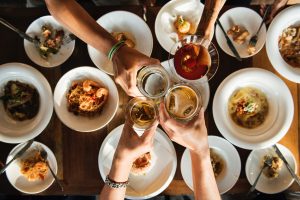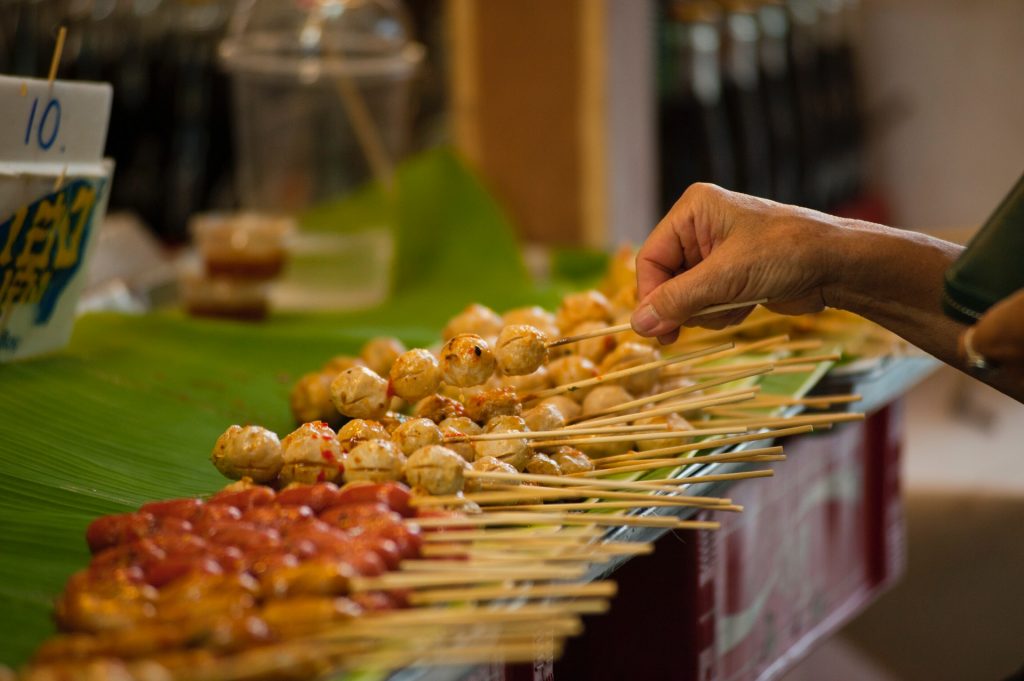

Traveling is never complete without exploring your target destination’s local culinary scene. Food has been (and will always be) one of the best ways to understand the culture of a foreign land. More than a life-sustaining commodity, food, like love, is a universal language that brings diverse people together.
If you’re visiting an unfamiliar place with unfamiliar yet interesting food scene, here are some tips to master the art and science of food tripping and make the most of your gastronomic adventure.
Table of Contents


Rule number one: Skip the comfortable and familiar.
If it looks strange but it’s edible, try it. Get out there and let your curiosity take over. Eat something you haven’t tried before – including the exotic ones. You don’t have to like it, but at least try to understand why locals love it.
The tasting experience may be a good or bad one. It could be the worst dish you’ve ever had, but it could also be the best. You’ll never know if you never try.
Next, to tasting their local food, embrace their eating practices too. If you’re in a group of locals who eat on a banana leaf with bare hands, then try to adapt. If they eat rice with chopsticks, learn it.
Tip: Research about the culture’s do’s and don’ts when it comes to dining. You may be called out for a simple mistake of leaving chopsticks standing vertically in your bowl of food.
If you’re looking for grub after visiting a popular attraction, don’t go to the nearest restaurant in the area. They’re likely catered to tourists. Not only they’re pricey – they usually lack authentic flavor.
Instead, go to dining places with food prepared by and for the locals. Search for informative blogs and vlogs curated by local influencers who love traveling, dining, and doing reviews. You may also ask the hotel concierge or any local for suggestions.
When in doubt, trust the crowd. If you see a restaurant packed with diners who are mostly locals, you’ve hit the jackpot. Food-obsessed natives know where to go, and it’s usually on the affordable yet authentic and high-quality side.
When visiting a new place, our eyes light up when we go to a busy marketplace with a wide array of food stalls, where locals cook in front of you. It’s tempting to try every unique fare that looks vivid and intriguing, aromatic, and piping hot.
However, it’s not an excuse to ignore the hallmarks of an unhealthy meal – too much oil, salt, sugar, and MSG. You should also be extra careful when it looks, tastes, smells and feels like it’s undercooked or has gone bad.
It’s not a crime to turn down food if it would lead you to safety. Do your best judgment, especially when dining in a remote area. Unless you’re in a fine restaurant in the city, it’s better to avoid meat served rare and raw seafood.
Another rule of thumb: Hot food should be served hot and cold food should be served perfectly chilled. Examine the temperature and avoid food exposed at room temperature, the danger zone where bacteria thrive.
Eating without fear doesn’t mean ignoring your food allergies and intolerance because a local told you so. Ask about the ingredients present in your meal. That tasty plate of Pad Thai, loaded with peanuts and shrimp, may not be worth your trip to the hospital.
Enjoy your gastronomic adventure without the fear of getting sick by taking these steps.
True food trip isn’t about being paranoid about how much salt or sugar you intake. Being mindful is just a part of the overall experience. At the end of the day, it’s about the joy of discovering something new and appreciating different cultures through food.
Never lose that curiosity. Discover and appreciate different complex flavors. Taste different spices. Breathe in different aromas, no matter how pleasant or unpleasant. Find joy in new food’s distinct colors and textures.
Ask about the place’s booming culinary scene – their specialty, their local ingredients, and their food producers. Interact with the farmers and growers, fishmongers, cheesemakers, brewers and distillers, and other local producers.
If you’re in a restaurant and you loved the food on your table, give compliments to its makers. Talk to the chef and restaurant staff who used the ingredients wisely and plated them to perfection. Patronize businesses, like this restaurant in Cork City who pay homage to their local food producers.
It’s through food appreciation that you create a deeper connection with the territory you’re in and the people living in it.
When embarking on a gastronomic adventure, take Anthony Bourdain’s wise words with you:
“Your body is not a temple, it’s an amusement park. Enjoy the ride.”
For ring buying, tungsten carbide would most likely be amongst the top choices for those…
When London's business class and luxury travellers are booking a tour to Switzerland, style, convenience,…
With the highly competitive and fast-paced academic world today, students are under tremendous pressure to…
There is a persistent myth in creative performance that growth happens in leaps. You master…
Why Learning Theories Are Important Students frequently focus on things like time management or taking…
When individuals head out to buy sunglasses, they're not concerned that it's going to be…